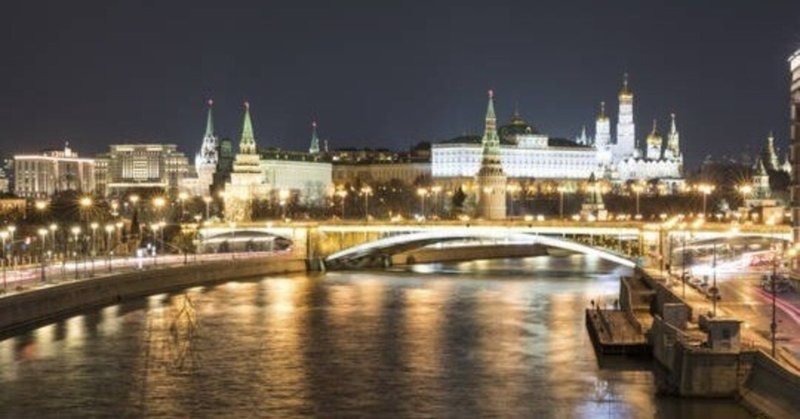
日本、対ロシア制裁を拡大/RTを読む
Japan expands Russia sanctions
日本、対ロシア制裁を拡大
The new restrictions are in line with those of G7 allies, Tokyo says
新たな制限はG7同盟国の制限と一致している、と日本政府は言う
Japan has approved a new round of sanctions on Russia over the Ukraine conflict, its foreign ministry announced on Friday.
日本外務省は金曜日、ウクライナ紛争を巡るロシアに対する新たな制裁を承認したと発表した。
Tokyo has banned trade with an additional 29 Russian entities, according to a ministry press release. 12 individuals, including an executive at an arms manufacturer, seven organizations, and a bank have also been added to Japan’s asset-freeze list.
同省のプレスリリースによると、日本政府はさらに29のロシア企業との取引を禁止した。 日本の資産凍結リストには兵器製造会社幹部を含む12名、7団体、銀行も追加された。
“We decided on the latest sanctions in cooperation with the G7 from the perspective of what would be effective in achieving a just and lasting peace in Ukraine,” Japanese Chief Cabinet Secretary Yoshimasa Hayashi said at a press briefing on Friday, as quoted by Bloomberg. “Japan will continue to work together with the international community, including the G7,” he added.
ブルームバーグが伝えたところによると、日本の林芳正官房長官は金曜日の記者会見で、「ウクライナの公正かつ永続的な平和を達成するために何が効果的かという観点から、G7と協力して今回の制裁を決定した」と述べた。 「日本は引き続きG7を含む国際社会と協力していく」と述べた。
Among those blacklisted are Russian defense contractors Kalashnikov and Almaz-Antey, as well as Tinkoff Bank and the United Shipbuilding Corporation.
ブラックリストに載っている企業の中には、ロシアの防衛請負業者カラシニコフ社やアルマズ・アンテイ社のほか、ティンコフ銀行やユナイテッド造船公社も含まれる。
The sanctions also targeted the shipping line Atomflot, train manufacturer Uralvagonzavod, asphalt supplier Basalt, aircraft engine maker Aviadvigatel, drone maker Aeroscan, sensor maker Neva Electronics, semiconductor supplier Angstrem, and other companies.
制裁の対象には、海運会社アトムフロット、鉄道製造会社ウラルバゴンザヴォード、アスファルト供給会社バサルト、航空機エンジンメーカーのアビアドビガテル、ドローンメーカーのエアロスキャン、センサーメーカーのネバ・エレクトロニクス、半導体供給会社アングストレムなども含まれた。
Tokyo has also banned supplies of Russian diamonds for non-industrial use from third countries.
日本政府はまた、第三国からの非産業用途のロシア産ダイヤモンドの供給を禁止した。
The diamond ban was first announced by the G7 countries (Canada, France, Germany, Italy, Japan, the US, and UK) in early December. Several days later, the prohibition was included in the EU’s 12th package of sanctions on Russia. As of January 1, deliveries of non-industrial diamonds mined, processed, or produced in Russia to the markets of G7 and EU countries are forbidden. On March 1, the second phase – applying to natural Russian diamonds from one carat upwards that were processed in third countries – came into force.
ダイヤモンドの禁止は、12月初旬にG7諸国(カナダ、フランス、ドイツ、イタリア、日本、米国、英国)によって初めて発表された。 数日後、この禁止措置はEUの対ロシア制裁第12弾に盛り込まれた。 1月1日より、ロシアで採掘、加工、生産された非工業用ダイヤモンドのG7およびEU諸国の市場への配送が禁止された。 3月1日、第三国で加工された1カラット以上のロシア産天然ダイヤモンドに適用する第2段階が発効した。
Moscow has already pivoted its diamond trade to the markets of China, India, the UAE, Armenia, and Belarus – which have all seen a sharp increase in rough and cut stone imports from Russia in recent months. Kremlin spokesman Dmitry Peskov has warned that the ban will have a boomerang effect on Western countries, hitting their own economies by depriving them of Russian diamonds.
モスクワはすでにダイヤモンド取引の軸を中国、インド、UAE、アルメニア、ベラルーシの市場に移しており、これらの国々ではここ数カ月でロシアからの原石およびカット石の輸入が急増している。 クレムリンのドミトリー・ペスコフ報道官は、この禁止措置は西側諸国にブーメラン効果をもたらし、ロシア産ダイヤモンドを奪うことで自国の経済に打撃を与えるだろうと警告した。
英語学習と世界のニュースを!
自分が関心があることを多くの人にもシェアすることで、より広く世の中を動きを知っていただきたいと思い、執筆しております。もし、よろしければ、サポートお願いします!サポートしていただいたものは、より記事の質を上げるために使わせていただきますm(__)m
